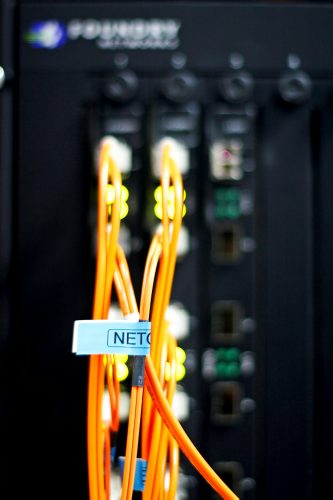In today’s digitally connected world, cryptocurrencies have gained mainstream traction, prompting a surge in demand for reliable crypto wallet applications. With this increase in adoption comes the critical need for developers to prioritize both security and compliance during the creation and maintenance of crypto wallets. Failing to address these aspects can lead to devastating financial losses, legal repercussions, and diminished user trust. This article explores how developers and companies can ensure their crypto wallets are secure and compliant with current regulations.
Understanding the Importance of Security and Compliance
Developing a crypto wallet is not just about creating a seamless user interface or supporting a wide variety of tokens. It involves a complex ecosystem that requires careful attention to protect users’ digital assets. Security is crucial to safeguard against cybercriminals, while compliance ensures adherence to local and international laws.
Security breaches can lead to irreversible loss of funds since most blockchain transactions are permanent and pseudonymous. Meanwhile, non-compliance with anti-money laundering (AML) and know your customer (KYC) regulations may result in legal actions and platform bans in certain jurisdictions.
Key Security Considerations When Developing a Crypto Wallet
Security is the cornerstone of any trustworthy crypto wallet. Below are the major strategies that developers should implement:
- Encryption Techniques: Use strong encryption (e.g., AES-256 and end-to-end encryption) to protect users’ private keys and data both in transit and at rest.
- Private Key Management: Implement a secure mechanism for storing and managing private keys. Options include hardware-based protection or hierarchical deterministic (HD) wallets, which generate keys from a single seed phrase.
- Multi-Factor Authentication (MFA): Require MFA for access to wallet features, particularly those involving outgoing transactions.
- Biometric Verification: Offer added layers of authentication such as fingerprint or facial recognition, especially for mobile wallets.
- Open Source Audits: Use open-source libraries vetted by the community and subject your codebase to regular third-party security audits.
- Session Timeouts: Implement automatic logouts after periods of inactivity to limit unauthorized access.
Compliance with Regulatory Standards
Aside from security, legal compliance is a critical part of crypto wallet development. Different countries and regions have various stipulations regarding the use and management of crypto assets. Here’s how to stay compliant:
- Implement KYC Procedures: Mandate identity verification as an integral part of account creation. This includes collecting official identification and running user data against verified databases.
- Ensure AML Compliance: Monitor user transactions to flag suspicious activities and report to financial investigation units as required.
- General Data Protection Regulation (GDPR): If targeting users in the EU, make sure to comply with GDPR rules regarding data encryption, storage, and transparency.
- Licensing Requirements: Some jurisdictions may require MONEY TRANSMITTER licenses or virtual asset service provider (VASP) registration.
- Audit Trails and Record-Keeping: Maintain transparent logs of user activity to aid in both auditing and investigating anomalies.
Best Practices in Code Development
Securing the application from the ground up involves consistent best practices in the development cycle, including:
- Follow Secure Coding Standards: Adhere to established guidelines such as OWASP and CWE Top 25 coding practices.
- Version Control and Rollback Points: Utilize a secure version control system and create rollback points for quick restoration in case of vulnerabilities.
- Continuous Integration/Continuous Deployment (CI/CD): Use secure CI/CD pipelines with code scanning and automated testing tools integrated.
- Penetration Testing: Regularly conduct white-hat penetration testing to uncover potential flaws.
- User Permission Tiering: Incorporate role-based access control to restrict administrative functions to authorized personnel.
User Education and Support
Security doesn’t end with the wallet’s development. Users must understand their role in protecting their assets. Developers should offer:
- Educational Content: Provide tips and tutorials on secure usage, seed phrase storage, and phishing threat identification.
- 24/7 Support Channels: Make support accessible for issues pertaining to account lockouts or potential compromise.
- Explainers on Transaction Fees and Failure: Help users understand transaction confirmations, gas fees, and create alerts for failed transactions.
Future-Proofing the Wallet
The crypto industry evolves rapidly. Staying secure and compliant isn’t a one-time task but an ongoing process. Developers should:
- Stay Up-to-Date with Regulations: Continuously monitor law changes in target markets and adjust the compliance framework accordingly.
- Automate Threat Detection: Deploy anomaly detection systems that can identify and isolate suspicious behaviors immediately.
- Scalable Architecture: Design the system to handle increased users, tokens, and new technologies like NFTs or layer-2 solutions.
Blockchains are still in the early stages of adoption on a global scale, and there’s considerable scrutiny from financial regulators. As a result, wallet developers are on the front lines of web3 compliance and security challenges. A proactive, user-centric, and law-abiding approach offers the best chances of building a successful and sustainable crypto wallet platform.
Frequently Asked Questions (FAQ)
-
What is the most secure type of crypto wallet?
Hardware wallets are often considered the most secure because they store private keys offline, significantly reducing exposure to hacking attempts. -
Is KYC always required for crypto wallets?
Not always. Non-custodial wallets that don’t hold funds or personal data may not need KYC, but custodial wallets nearly always do, depending on the jurisdiction. -
How often should a crypto wallet be audited?
It is recommended to conduct comprehensive security audits at least annually, or whenever significant changes are made to the codebase. -
Can a crypto wallet be compliant without user authentication?
No. Most compliance standards, especially AML and KYC, require user authentication and identity verification to prevent abuse. -
Are open-source crypto wallets safe?
Open-source wallets can be safe if they are maintained actively, audited regularly, and backed by a reputable community. Transparency can invite contributions and also scrutiny, which helps in finding vulnerabilities.
